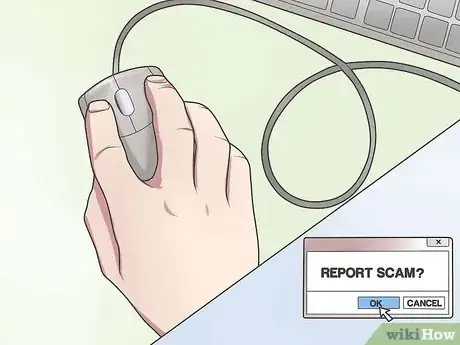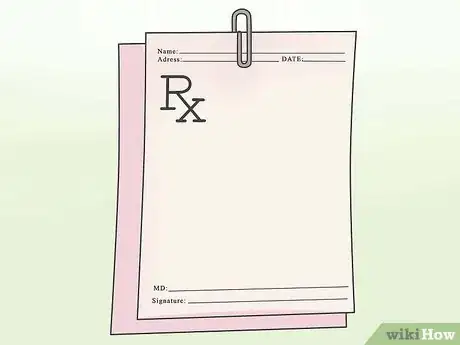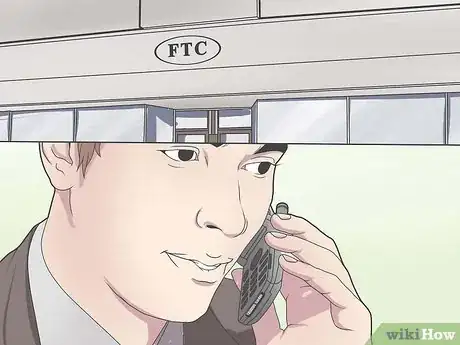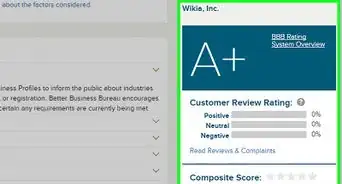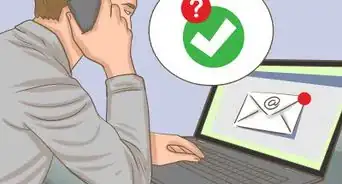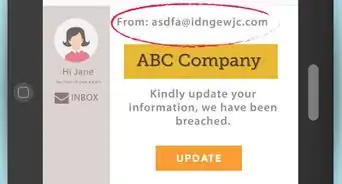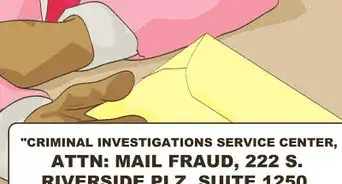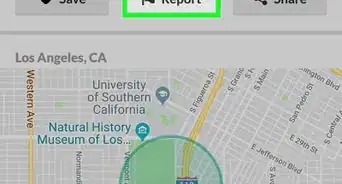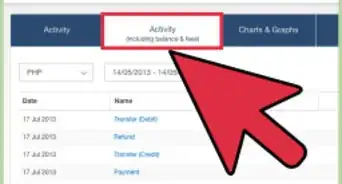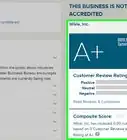This article was co-authored by Scott Nelson, JD. Scott Nelson is a Police Sergeant with the Mountain View Police Department in California. He is also a practicing attorney for Goyette & Associates, Inc. where he represents public employees with a myriad of labor issues throughout the state. He has over 15 years of experience in law enforcement and specializes in digital forensics. Scott has received extensive training through the National Computer Forensics Institute and holds forensic certifications from Cellbrite, Blackbag, Axiom Forensics, and others. He earned a Master of Business Administration from the California State University Stanislaus and a Juris Doctorate from the Laurence Drivon School of Law.
This article has been viewed 57,382 times.
Scams are attempts to get you to pay for things or services that you don't need, want, or understand. It can be difficult to identify a scam, but reporting a scam after you have already been made a victim may help you regain what you lost. Even if you have lost nothing, however, you should still report the scam to prevent others from falling victim to it.
Steps
Reporting Internet and Telephone Scams
-
1Report email scams to your email provider. Most email providers have some sort of spam filter or spam section of the inbox. Any scams or phishing schemes that do not automatically get forwarded to this section can be filed there manually by clicking on the "Spam" or "Report as Spam" button at the top of the email or inbox. When you take this action, oftentimes, the email provider is automatically alerted.
- If the provider is not contacted, you can go to the provider's help section and find out which customer support email address to forward to scam email.
-
2Write to your local Secret Service field office for financial transfer scams. If you receive one of the infamous "Nigerian prince" emails that offer you a large sum of money in exchange for assistance in a financial transaction, forward or fax a copy of the email to the U.S. Secret Service at 419.fcd@usss.treas.gov or 202-406-5031, respectively. The Secret Service keeps all such messages for future investigations.Advertisement
-
3Notify a company being spoofed or impersonated. If you receive an email from a company that asks for personal information, such as your Social Security Number, there is a good chance that the email you received is fake and that the company sending it is not the company it claims to be. In cases like these, you should email or call the customer support section of the company being impersonated to inform them of the fact that someone is attempting to phish information from their customers.
-
4Make use of scam reporting services on merchant community websites. Online auction websites and other websites through which users buy and sell their own belongings usually have special sections of their websites dedicated to reporting scams. If you see a posting that is clearly a scam, flag it as such and contact the scam section of the website's customer support department.
-
5Write or call the Federal Trade Commission about telemarketing scams. If a company calls with a suspicious offer, such as a free cruise, credit card, or loan offer, alert the FTC by going to their website and filing a complaint via the tools and links on the FTC's website.[1]
- The FTC can and should also be contacted about email and Internet scams you find, especially if they are scams meant to obtain personal financial information from you.
Reporting Business and Tax Scams
-
1Contact the Better Business Bureau for business scams.[2] The BBB handles all scam reports for businesses and charities located in the United States and Canada. If you discover a business scam, contact the BBB in the city and state the business is located in. If you do not know the precise location, go to the BBB website and fill out the "Report a Scam" form there, filling out as much contact information as possible.
- The BBB's primary use is to protect consumers against bad businesses. By reporting a business scam to the BBB, you prompt them to investigate the business. If that business's practices prove fraudulent, the BBB will report them as such, warning other consumers not to get involved.
-
2Call the Homeowner's Hope Hotline, FTC, and state Attorney General to report home loan scams. The Homeowner's Hope Hotline can be reached at 1-888-995-HOPE and the FTC can be reached at 877-FTC-HELP. Contacting all of these organizations will help you regain whatever you lost from the scam and can also help prevent others from being targeted by the same group of scammers.
-
3Report tax scams to the Internal Revenue Service. If you discover that someone has been cheating on their taxes, especially through the use of off-shore schemes or trusts, report those violators to the Lead Development Center of the IRS. You should especially report promoters of such scams to the IRS. You can contact the Lead Development Center by fax at 877-477-9135.[3]
-
4Alert the Food and Drug Administration about medical and drug scams. Scams concerning the illegal sale of prescription medication or false medical treatments should be reported to the FDA. If you receive these scams via email or are harassed by them online, send an email with as much information as possible to webcomplaints@ora.fda.gov.
-
5Fill out a fraud complaint form with the USPS for mail scams. If you are a victim of mail fraud or someone attempts to scam you using the mail system, the United States Postal Service should be notified. It cannot resolve standard disputes between customers and legitimate companies, but it can and will act if the company's activity suggests fraudulent activity.
-
6Contact your local law enforcement and the FTC for all other scams. If you lost money or personal information due to a scam, it is important to file a report with local, county, or state law enforcement officials. The Federal Trade Commission should also be notified of any and all major scams that attempt to falsely steal money from you.
Sample Letters
Expert Q&A
Did you know you can get expert answers for this article?
Unlock expert answers by supporting wikiHow
-
QuestionWhat can you do if you get scammed?
 Scott Nelson, JDScott Nelson is a Police Sergeant with the Mountain View Police Department in California. He is also a practicing attorney for Goyette & Associates, Inc. where he represents public employees with a myriad of labor issues throughout the state. He has over 15 years of experience in law enforcement and specializes in digital forensics. Scott has received extensive training through the National Computer Forensics Institute and holds forensic certifications from Cellbrite, Blackbag, Axiom Forensics, and others. He earned a Master of Business Administration from the California State University Stanislaus and a Juris Doctorate from the Laurence Drivon School of Law.
Scott Nelson, JDScott Nelson is a Police Sergeant with the Mountain View Police Department in California. He is also a practicing attorney for Goyette & Associates, Inc. where he represents public employees with a myriad of labor issues throughout the state. He has over 15 years of experience in law enforcement and specializes in digital forensics. Scott has received extensive training through the National Computer Forensics Institute and holds forensic certifications from Cellbrite, Blackbag, Axiom Forensics, and others. He earned a Master of Business Administration from the California State University Stanislaus and a Juris Doctorate from the Laurence Drivon School of Law.
Police Sergeant, Mountain View Police Department
References
About This Article
To report an email scam, contact your email provider directly or forward the message to the Secret Service at 419.fcd@usss.treas.gov. Alternatively, if the email claims to be from a company but asks for personal information, contact customer support for that company so they can inform their customers. You can also file a complaint with the Federal Trade Commission on their website. If you become aware of a business scam, such as a fake charity, fill out a form on the Better Business Bureau website so they can perform an investigation. For advice on how to proceed if you think someone has stolen your personal information, read on!



